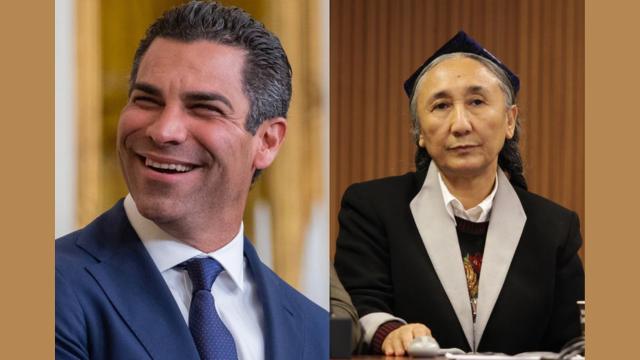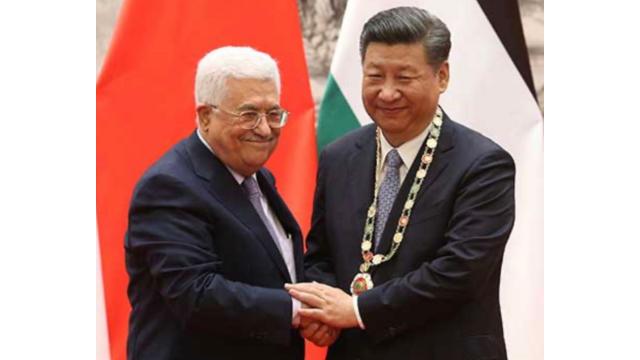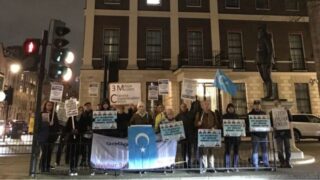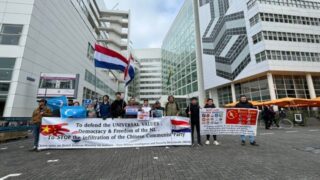A U.S. presidential candidate confessed he does not know who the Uyghurs are. But understanding the Uyghur issue is essential to understanding China.
by Kok Bayraq


The gaffe of US presidential candidate Francis Suarez asking, “What is a Uyghur?” and the reactions to it reflect a vital weakness in at least a part of the international political community. Commentaries on this gaffe described the Uyghur issue almost entirely as a humanitarian case. However, the Uyghur issue is directly (or indirectly) a geopolitical and international peace issue for the free world as a whole.
Last March, Niva Yau, then a researcher at the Academy of the Organization for Security and Co-operation in Europe (OSCE), presented her testimony to the US Congress’ US-China Economic and Security Review Commission about China’s historical relationship with Uyghurs and other peoples in the region. “The rise and fall of Chinese dynasties, Yau said, were often connected to [the] management success of relations with empires and tribes in the Western region. Multiple Chinese dynasties were driven to bankruptcy and, in some cases, captured due to never-ending wars with nomadic groups coming from the Western region.”
This statement indicates that knowing the Uyghurs means knowing the reason why the Great Wall of China, one of the wonders of the world and an ancient geostrategic defense tool, was built and, more importantly, understanding how strong armies managed to keep China inside its Great Wall for thousands of years.
Referring to more recent times, Niva Yau stated that, “Beijing was under great pressure, as the [Uyghur] independence movement raised serious internal security and stability concerns.” She emphasized that Beijing sees the Uyghurs as the most significant obstacle to the implementation of the Belt and Road Initiative (BRI) and is taking measures even beyond China’s borders to remove this obstacle. It is clear that the BRI is part of a world domination plan by China. Being an obstacle to the BRI, the Uyghurs are crucial to the defense of the free world.


According to US Representative Mike Gallagher, Chinese military challenges are “deliberate, strategic, and aggressive,” and the US should set up “rings of fire” to deter China. Experts suggest strengthening military bases in Japan and the Philippines. However, given its unending struggle for independence and the hatred and hostility fueled by the genocide, East Turkestan is now a cultural military base against China, filled with spiritual weapons. Investing in this base would be a low-cost, long-term national defense measure that would be particularly effective in knocking down enemy defenses from within.
The Uyghurs declared their independence twice, in 1933 and 1944, when they received international support. Although these two East Turkestan republics fell victim to international political games— their armies were dissolved and their leaders were slain—the peoples that created them are still alive with their longing for independence and freedom. This strong longing is an indication that the region is a time bomb waiting to explode one day.
Abliz Abdulhek, the Uyghur author of “ Independence or Death,” stated that “the structure of the People’s Republic of China is against the laws of nature; it will surely fall”; ‘“the United States and Europe will one day be on our side against China… We need to announce to the international community that we are a people that has not only been oppressed for decades but has also continued the struggle against oppression, and that for our survival, we as a people do not have to walk on the backs of others but just need others to hold our hands to help us stand up.”


Therefore, knowing the Uyghurs means recognizing the soft underbelly of China, the free world’s greatest enemy, and having an effective weapon against it.
China has considered Islamic countries its most reliable allies for hiding the Uyghur Genocide and facilitating the BRI. As a result of this understanding, China protested the burning of the Qur’an in Sweden despite maintaining a Marxist ideology that considers religion as the opiate of the masses, declares Islam a mental illness, and “cures” three million Uyghurs in the camps.
By inviting diplomats, journalists, and scientists of Muslim countries to visit the Uyghur region and showing them its Potemkin villages, China persuaded these countries to ignore the Uyghur genocide. China has already reaped the fruits of its efforts. For example, Palestinian leader Mahmoud Abbas declared that he recognizes China’s policy in “Xinjiang” as needed for countering terrorism. He stated that the Uyghur issue is just a political tool created by the United States to interfere in the internal affairs of China. Beijing’s government, which carries out a genocide against Muslim Uyghurs, was invited to the summit of Organization of Islamic Cooperation as a guest, and Xi Jinping was even compared to the Prophet by Pakistan’s former Prime Minister Imran Khan.


In response to Muslim countries’s betrayal of the Uyghurs, Uyghur leader Rebiya Kadeer stated that, “This genocide in East Turkestan started since the occupation [and] continues today in a more open and different way. We are living in the 21st century. China may reduce our numbers and stop our development with this genocide, but it cannot destroy our national existence. As it has been for ages, we will overcome any oppression and betrayal with the will of God and the ancestral spirit that has been instilled in us from generation to generation. The mountains may move, [and] the sun may rise in the west and set in the east, but the Uyghurs will not become Chinese!”
The Uyghurs are not just an oppressed people, they are also indomitable freedom fighters. The CCP is a global threat that not only kills Uyghurs but also violates the basic rights of its own people, keeps 1.4 billion citizens in an immense jail, and attempts to export its anti-human-rights ideology throughout the world. Stopping the Uyghur genocide is not just a humanitarian action; it is an action for the peace of Asia, Europe, and the world.
Thus, not knowing the Uyghurs means not knowing about the most evil and shameful game of the 21st century that is being played out on the international stage. Living in ignorance of the games of the enemy means putting the national security of one’s own country at risk.









